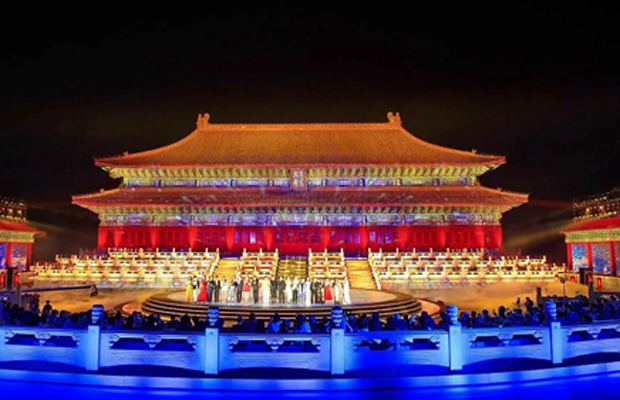CCG advocates the development of talent mobility. Committed to study of the globalization of talent, CCG conducts major research projects, organizes events, publishes books and research reports in the fields of international talent, international migration, overseas Chinese, and the situation of talent studying abroad and returning to China.
Impact on Policymaking Based on solid empirical research results, CCG proposes a series of policy recommendations to improve China's talent development and immigration system, and plays an active role in promoting major policies, such as the establishment of the National Immigration Administration.
CCG has published a series of Blue Books such as the Blue Book of Global Talent: Annual Report on the Development of Chinese Students Studying Abroad, Blue Book of Global Talent: Annual Report on Chinese International Migration, Blue Book of Regional Talent: Report on China’s Regional International Talent Competitiveness, and the IOM World Migration Report, as well as a series of English books with Springer, including China’s Domestic and International Migration Development, filling the gap in the field of international talent research in China.
CCG has established brand forums such as the China Talent 50 Forum and the Global Education 50 People Forum, and has hosted the China Overseas Returnees Innovation and Entrepreneurship Forum for many years.
CCG's initiative of establishing the Alliance of Global Talent Organizations is supported by relevant national ministries and the Beijing municipal government. CCG’s proposal was selected to participate in the first Paris Peace Forum and CCG held an event on the Alliance of Global Talent Organizations titled “Brain Drain: Making Better Use of the World’s Talent” at the second Paris Peace Forum.
-

Laurence Brahm: Does Washington fear yuan’s evolution?
By labeling China a "currency manipulator" following Washington's threat to impose 10 percent tariffs on another $300 billion of Chinese goods from Sept 1, the US Treasury Department has dealt another serious blow to bilateral ties. The United States has labeled China a "currency manipulator" even before. But in the current context, it reflects the US' intolerance of the existing world order, and international trade and economic rules which are different from its own.
August 13 , 2019 -

Wang Huiyao: New green consensus can revive multilateral mindset
In recent years, images of trash-strewn seas and beaches have led to growing calls to tackle marine plastic waste. At the G20 Summit in June in Osaka, Japan, leaders moved to start addressing the issue with a major agreement to eliminate pollution by marine plastic litter by 2050.
August 07 , 2019 -

Wang Huiyao: Go from Asian civilization to Asian community
Recently, the Conference on Dialogue of Asian Civilizations was held in Beijing. In his opening remarks, President Xi Jinping said that interaction and mutual learning promote the development of civilizations; Asian people should reject self-exclusion, embrace integration, uphold openness to foster a community with a shared future for both Asians and all humanity.
August 06 , 2019 -

Harvey Dzodin: Conference illustrates importance of dialogue
Participating in the Dialogue of Asian Civilizations last week was a highlight of my year. It was a rich experience in every respect, from people-to-people exchanges to formal and informal information-sharing. True to its theme of “exchanges and mutual learning among Asian civilizations and a community with a shared future”, there was an abundant flow of ideas and information. I even found healthy dollops of idealism and optimism at a time when there is so much global cynicism and zero-sum thinking in our world.
August 06 , 2019 -

Laurence Brahm: Conference provides opportunity for new paradigm
The Conference on Dialogue of Asian Civilizations taking place in Beijing from May 15 to 16 is using open dialogue to establish a fresh set of universal values founded on the core heritage and culture of very ancient civilizations. The Silk Road historically was the economic order for thousands of years. It was a technology shift, as high-sea sailing vessels and the industrialization of arms caused overland trading routes to fall into disuse. The outcome was economic might shifting to coastal regions. A system of colonization emerged, followed by a post-colonial era that sought to maintain the status quo. Today, another technology shift — high-speed rails, smart road systems, telecommunications and 5G wireless — are changing the economic paradigm and reviving overland trading routes. China calls it the “Belt and Road.” Another way of understanding it is a new Silk Road, or even a “Cyber Silk Road.”
August 06 , 2019


